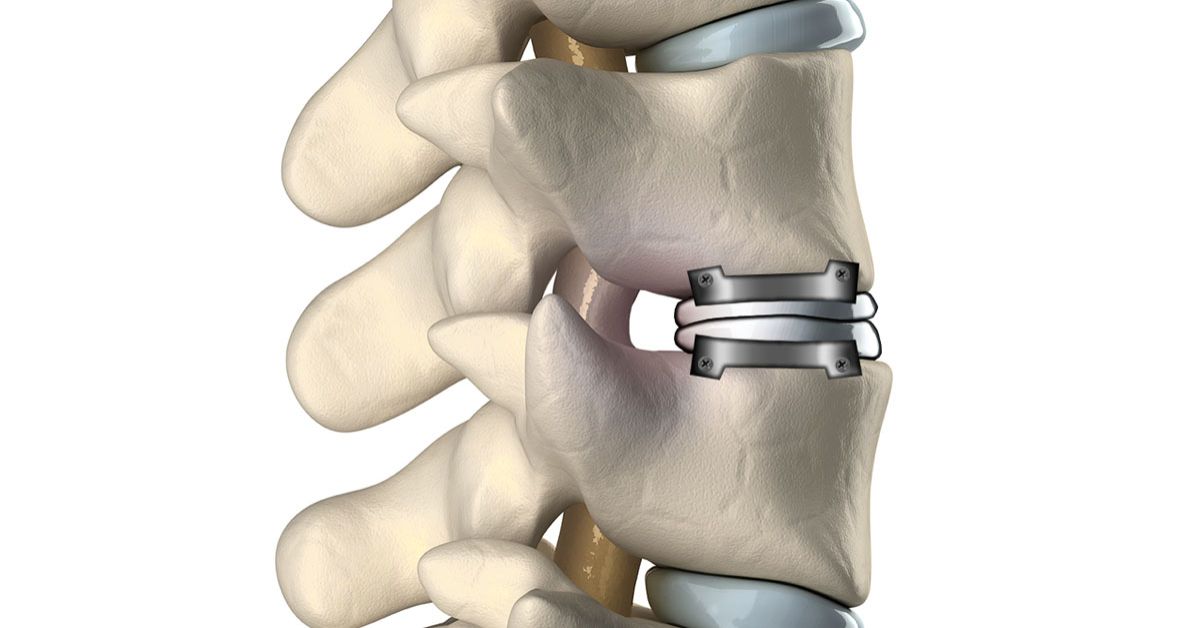Why Consider Disc Replacement Surgery? Unveiling Its Numerous Benefits

When it comes to dealing with spinal disc problems, many individuals often face the tough decision of whether to undergo surgery. Among the most common procedures for treating spinal conditions is Disc Replacement Surgery. As an alternative to traditional spinal fusion, disc replacement offers a potential solution to those who suffer from degenerative disc disease, herniated discs, and other spinal conditions that affect mobility and quality of life.
This blog post will delve deep into why to consider disc replacement surgery by exploring its numerous benefits. We will examine the key advantages it offers to patients, compare it with other surgical options, and provide insight into how it can help patients regain mobility, comfort, and long-term spinal health.
What is Disc Replacement Surgery?
Disc Replacement Surgery, also known as Artificial Disc Replacement (ADR), is a procedure in which a damaged or degenerated spinal disc is replaced with an artificial disc. The spine is made up of vertebrae (bones), and between these vertebrae are intervertebral discs. These discs act as shock absorbers for the spine, allowing it to remain flexible and reducing the impact of daily activities. However, as we age, or due to injury, these discs can degenerate, leading to pain, stiffness, and decreased range of motion.
Disc replacement surgery involves the removal of the problematic disc and the insertion of an artificial disc, designed to mimic the function of a natural disc. This surgery is typically done in the cervical (neck) or lumbar (lower back) regions of the spine.
Why Consider Disc Replacement Surgery?
There are several reasons why individuals suffering from spinal conditions might consider disc replacement surgery. Let’s explore these in detail.
Preservation of Spine Mobility
One of the primary benefits of disc replacement surgery is that it allows for the preservation of spinal mobility. Unlike spinal fusion surgery, which involves fusing the adjacent vertebrae together, disc replacement preserves the natural motion of the spine. In fusion surgery, the bones are connected, which can reduce flexibility and lead to an increased risk of stress on the surrounding vertebrae.
With disc replacement, the new artificial disc mimics the natural disc’s movement, enabling patients to retain their spine’s normal flexibility and motion. This is particularly important for individuals who want to continue with an active lifestyle without compromising their spinal movement.
Faster Recovery Time
Another significant advantage of disc replacement surgery recovery time is the shorter compared to spinal fusion. Spinal fusion often requires extended hospital stays, and the recovery period can last for several months, as the bones need time to heal and fuse together. During this period, patients may experience discomfort and a limitation in their activity levels.
On the other hand, disc replacement surgery generally involves a minimally invasive technique, which can significantly reduce hospital stays and recovery time. Most patients can return to normal activities within six weeks to three months, depending on the individual’s health and the extent of the surgery.
Reduced Risk of Adjacent Segment Disease
One of the long-term complications associated with spinal fusion is adjacent segment disease (ASD). When adjacent vertebrae are fused together, it can place extra pressure on the discs and joints in the surrounding areas. Over time, this added stress can cause degeneration in nearby spinal discs, potentially leading to the need for additional surgery.
With disc replacement surgery, the natural motion of the spine is preserved, which helps to distribute forces evenly throughout the spinal column. This reduces the risk of adjacent segment degeneration and improves the long-term outcomes of the procedure.
Improved Pain Relief
For individuals suffering from chronic neck or back pain due to degenerative disc disease or herniated discs, disc replacement surgery offers a significant improvement in pain relief. The artificial disc is designed to alleviate pressure on the spinal nerves, which can reduce the pain caused by conditions like herniated discs, bulging discs, and degenerative disc disease. By restoring the natural function of the spine, patients often experience improved comfort and a reduction in pain after surgery.
Minimally Invasive Procedure
Compared to traditional spinal fusion surgery, disc replacement surgery is a less invasive procedure. The surgical approach often involves small incisions, which means less muscle disruption, reduced scarring, and a faster recovery. The minimally invasive nature of the surgery also means that there is a lower risk of complications, such as infections, blood loss, and nerve damage.
Long-Term Results and Durability
Artificial discs are designed to be durable and long-lasting. They are made from materials such as metal and polyethylene that can withstand the stresses and motions of the spine over many years. Most modern artificial discs are designed to last for 20 years or more, offering patients a permanent solution to their spinal disc problems.
Unlike spinal fusion, which may require additional surgeries down the road to address complications such as adjacent segment disease, disc replacement surgery offers a more reliable and long-term solution.
No Need for Bone Grafting
In traditional spinal fusion surgery, a bone graft is often required to help the adjacent vertebrae fuse together. This graft can be taken from the patient’s own body, a donor, or synthetic material. The process of harvesting the bone graft can lead to additional surgical sites, pain, and complications.
In disc replacement surgery, no bone grafting is necessary, as the artificial disc is inserted into the spine without the need for bone fusion. This eliminates the risk of complications associated with bone grafting and reduces the overall complexity of the surgery.
Better Quality of Life
The ultimate goal of any surgical procedure is to improve the patient’s quality of life. Disc replacement surgery helps patients regain freedom from chronic pain, restore normal spinal function, and reduce the risk of long-term complications. This can lead to a significant improvement in daily life, enabling patients to return to activities they may have been avoiding due to pain or limited mobility.
Patients often report better sleep, improved posture, and enhanced physical ability after recovering from disc replacement surgery, all of which contribute to a higher quality of life.
Comparing Disc Replacement Surgery with Other Options
When considering options for treating spinal disc problems, patients typically have several choices, including spinal fusion, disc herniation surgery, and conservative treatments like physical therapy. Let’s compare disc replacement surgery with some of these other treatment options:
Disc Replacement vs. Spinal Fusion
Spinal fusion is the most commonly performed spinal surgery and involves fusing two or more vertebrae together using bone grafts or metal hardware. While it can relieve pain, spinal fusion sacrifices the spine’s natural mobility, which can result in a loss of flexibility and an increased risk of problems in adjacent segments.
In contrast, disc replacement surgery preserves spinal motion and has a shorter recovery time. It is an ideal choice for patients who are looking for a solution that retains flexibility and has long-term benefits without compromising the surrounding spinal structures.
Disc Replacement vs. Conservative Treatments
Conservative treatments such as physical therapy, medications, and lifestyle changes may be effective for managing mild or moderate spinal conditions. However, for patients with severe disc degeneration or herniated discs, these treatments may not provide sufficient relief. In such cases, disc replacement surgery offers a more definitive solution to alleviate pain and restore spinal function.
Conclusion
Disc replacement surgery is a revolutionary advancement in spinal care that offers numerous benefits for patients suffering from degenerative disc disease, herniated discs, and other spinal conditions. From preserving spinal mobility and reducing the risk of adjacent segment disease to offering faster recovery times and long-lasting results, disc replacement surgery provides a promising solution for individuals seeking relief from chronic back or neck pain.
If you are considering spine surgery, consult with a qualified spinal surgeon to determine if disc replacement surgery is the right option for your condition. This minimally invasive procedure has the potential to transform your quality of life and restore your mobility, helping you get back to doing the things you love.
Read More ( Click Here )



